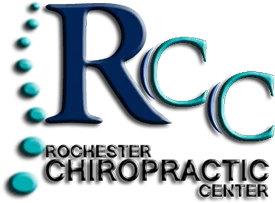Nutrition may sound like a complicated subject, but it’s really quite simple. Basically, nutrition describes how the food choices that you make affect your overall wellness. This includes how your body functions at the level of your cells, tissues and organs.
Overview of Nutrition and You
In order to stay healthy, you have to eat foods that provide your body with the energy and nutrients that it needs to work optimally. These include:
- Proteins
- Carbohydrates
- Fats
- Vitamins
- Minerals
- Water
- Other nutrients from plants (phytonutrients)
Eating healthy can be easy. The key is to keep in mind these basic guidelines, which never go out of style:
- Eat many different healthy foods, including a wide variety of fresh vegetables and fruits and whole grains
- Choose lean protein sources such as beans and peas, fish, lean meats, poultry and low-fat dairy products
- Limit your intake of sugar, salt and trans and saturated fats
- Use alcohol in moderation
- Drink plenty of water (You will also get water from fresh foods, especially fruits and vegetables.)
More Detailed Nutritional Information
The basics of nutrition will go a long way to keeping you healthy. However, knowing more about what’s in your food will help you make smart choices about what to eat. Here is a little more information on nutrition.
Vitamins, minerals and other nutrients. Healthy foods contain a wide number of nutrients that keep you healthy. Both vitamins and minerals are needed by your body to grow and develop normally. These include, but are not limited to, vitamins C and D, and the minerals calcium and iron. Plants also contain other nutrients (phytonutrients), some of which may have cancer-fighting properties or other benefits.
Superfoods. These special foods contain nutrients that are above and beyond what’s needed to simply keep your body going. Superfoods include leafy greens (such as spinach and kale), tomatoes, chocolate (i.e., dark chocolate with at least 70-percent cacao), blueberries and certain spices, such as turmeric. Each superfood has its own benefits, so be sure to eat a wide variety of them, as often as possible.
Whole grains. Whole grains include wheat, oats, brown rice, barley, cornmeal and others; they are not processed, or refined. Processed foods may include grains, but they typically include refined grains from which the nutritional value has been leached. Examples of processed foods with refined grains are breads, pasta, cereal, white flour, white rice and cookies. In contrast, whole grains contain important nutrients, including fiber. To get the most health benefits, make sure at least half of your grains — and the foods that contain them — are whole.
Lean protein sources. Your body needs protein-rich foods to build muscle and carry out many functions in the cells and tissues. Some protein sources, though, contain high levels of saturated fat that can be bad for your health. To boost your health, look for lean protein sources such as lean cuts of meat, poultry, seafood, beans and peas (legumes) and nuts and seeds.
Sugar, salt and trans and saturated fats. Many processed foods contain things that can damage your health if eaten in large quantities. Some of these, such as salt, sugar and trans fats, are added to processed foods to change the flavor. Others, such as saturated fats, occur naturally in foods such as meat and eggs. To stay as healthy as possible, limit your intake of these, opting instead for foods like fresh fruits and vegetables.
